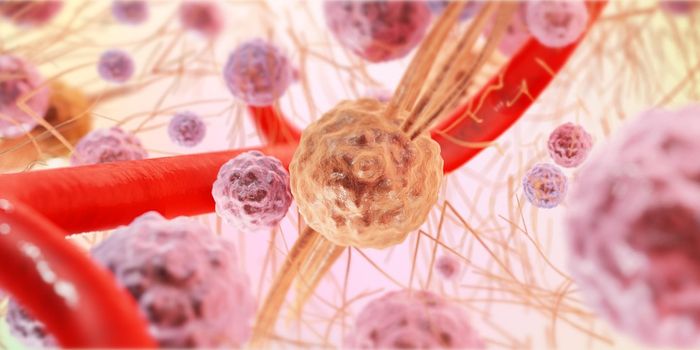New Cell Population Found to Drive Cancer Progression
The innate immune system is the first response the body initiates when exposed to foreign pathogens. A myriad of cells are orchestrated to firmly identify and neutralize the invader. Cells included in this response are eosinophils, basophils, macrophages, and neutrophils. This response is fast and non-specific or broad compared to the second wave of immunity known as the adaptive immune system. The adaptive immune system targets specific pathogens based on their external surface markers. A critical cell population that responds almost immediately to infection or disease, such as cancer, includes neutrophils. Neutrophils are highly granulocytic and recognize infectious agents to neutralize or lyse them before other cells can be infected. While much work has been done to investigate this cell population, there are still limitations to our understanding, specifically in the context of cancer.
A recent article published in Science by Dr. Lai G. Ng identifies a new population of neutrophils within the tumor microenvironment of pancreatic cancer. Ng is a lead researcher at the Singapore Immunology Network (SIgN) and his team works to investigate the role of neutrophils in the context of disease.
Ng and others set out to determine if neutrophils present around a tumor became reprogrammed to elicit a pro-tumor function. The team first ran genomic analysis on tissues from pancreatic mouse models to determine if there was a population present. They analyzed bone marrow, blood, spleen, and tumor to discover there was a significantly present population around the tumor.
The team had to further analyze and confirm the clustering was not strictly a neutrophil population, but a new subtype of neutrophil. Further analysis demonstrated that this population has different markers and gene expression compared to “common” neutrophils. In addition, Ng and others discovered that mature and immature neutrophils entered the tumor microenvironment (TME) and both were reprogrammed into this third population, which the authors termed “T3”. Cells are generated in the bone marrow and through different phases and cycles, they are differentiated into mature or fully differentiated cells with immunocompetent properties. Different stages of maturity exist and in the context of cancer, many cells do not reach maturation. It is a novel discovery that both mature and immature cells enter the TME and are further differentiated into this third cell population. Additionally, T3 neutrophils were found to promote tumor progression. Ng and his team discovered that T3 neutrophils express Vascular Endothelial Growth Factor A (VEGFa), which regulates the production of blood vessels. The growth of blood vessels around the tumor is commonly referred to as angiogenesis. Blood vessel formation is a key hallmark of cancer and is the primary route in which tumors metastasize to other locations.
Ng and others for the first time identified a novel neutrophil population around solid tumors. Their work has progressed the field by characterizing this population and providing a better understanding for how the immune cells in the body can become reprogrammed through tumor signaling. The distinct neutrophil population will allow future scientists to study this population and learn more about the tumor-neutrophil interaction. This is another step toward complete tumor treatment as researchers analyze each level of tumor and immune cell biology.








